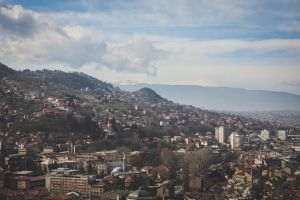The challenges related to climate change are increasing, and the transformations are evident. It is clear that without concrete measures, the losses will be enormous. The Greenland ice sheet lost an area of 5,091 square kilometers between 1985 and 2022, according to a study published in the journal Nature, the first complete estimate of the ice surface lost at this level. The reduction reflects the 1,034 gigatons of ice that melted with glacier retreat, ice collapse through "calving" - when chunks of ice break off from the glacier - at the edges. This study is also the first to estimate the total amount of ice specifically lost from Greenland due to glacier reduction. It suggests that previous estimates of changes in Greenland's ice sheet mass balance - the amount of snow and ice accumulated each year versus the amount lost - have underestimated those losses by up to 20% by neglecting glacier shrinkage. The loss of 5,091 square kilometers represents an area the size of the island nation of Trinidad and Tobago. The study used over 200,000 satellite or AI-assisted observations of glaciers to analyze these changes over time. "In Greenland, it's the areas around the edges where everything is retreating and collapsing," said study co-author Alex Gardner, a researcher in Earth sciences at NASA's Jet Propulsion Laboratory. "Previous methods weren't quite as good at measuring such a change in the ice sheet. But the change is enormous." The Greenland ice sheet is one of the two remaining ice sheets, the other being located in Antarctica. Comprising hundreds of glaciers, it covers about 80% of Greenland's expanse. If it were to melt completely, the Greenland ice sheet would raise sea levels by about 7.4 meters. As climate change has led to a fourfold increase in temperatures in the Arctic compared to the rest of the world, scientists said that, inevitably, the melting of the Greenland ice sheet will already raise sea levels by at least 27 centimeters. The new estimate of ice loss due to glacier retreat would have a minimal impact on sea levels, scientists argue, but a major impact on ocean current circulation. Such a large amount of freshwater could strengthen coastal currents in the Greenland region and contribute to weakening the Atlantic Meridional Overturning Circulation system, which moves water from north to south and brings warmth to Europe.
Greenland Ice Sheet Lost 5,091 Square Kilometers
O.D.
English Section / 19 ianuarie 2024























































